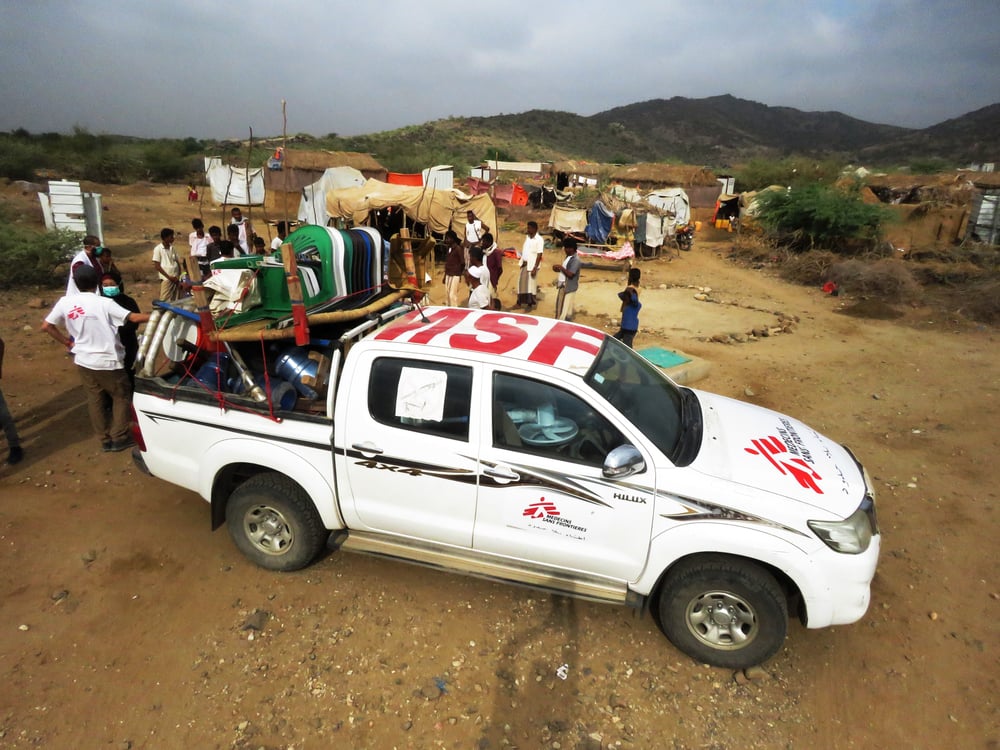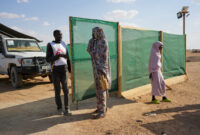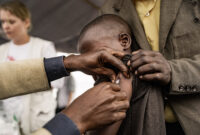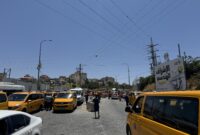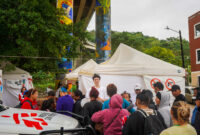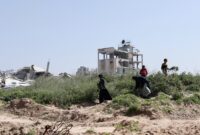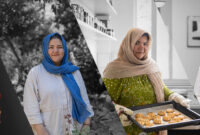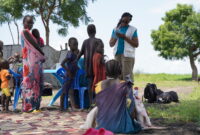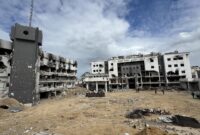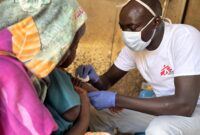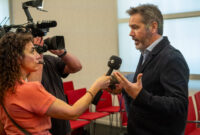War and Conflict
Around one-quarter of our medical humanitarian assistance is for populations caught in armed conflict.
Armed conflict devastates lives and destroys communities. Targeted, harassed and caught in hardship and poverty, people are forced into flight or to live under siege and face indiscriminate attacks. Access to basic needs such as food and medical care is often disrupted.
Comprehensive medical and humanitarian support is vital, though health services are often scarce. Doctors Without Borders/Médecins Sans Frontières (MSF) provides medical care based on needs alone and work hard to reach those who need help the most.
Around one-quarter of our projects are dedicated to assisting people living in areas of war and armed conflict including Yemen, South Sudan, Nigeria, Iraq, and Syria among many others.
What do we see?
The consequences of war
Despite international laws that should protect community members during armed conflict, MSF often sees the heavy price they pay. After four years of war, Yemen illustrates the devastation caused by indiscriminate or targeted attacks that kill and injure people in addition to destroying civilian infrastructure.
The emergency rooms and operating theatres were overflowing with wounded people. They received approximately 70 patients in one day. We treated people with bullet, shrapnel and landmine wounds. It was an extremely shocking scene to arrive at.
Arunn Jegan | MSF Project Coordinator, 2018
TWEET THIS:
Conflict and health
Armed conflict causes injury, displacement and death while additionally affecting access to healthcare even after the front lines have moved.
It devastates essential health services, disrupts medical supplies, forces medical staff to flee and leaves the national immune system broken. When deadly diseases arrive, they are even harder to fight.

For people caught up in violence or its aftermath, it is more important than ever to have access to healthcare, shelter, sanitation and food, to ensure they can survive and look to the future.
How does MSF respond?
Trauma injuries surge during armed conflict, calling for increased surgery and emergency care. Further, regular medical needs are heightened as healthcare services collapse. Pregnant women and people with chronic diseases such as diabetes or HIV are left particularly vulnerable.
Sexual and gender-based violence
As commodities become scarce, the price of basic food and relief items soar, while fear, insecurity and loss generate psychological distress.
We regularly see an increase in sexual and gender-based violence during conflict. In some cases, rape is used to subdue a community.
As sexual violence can occur anywhere at any time, MSF ensures all its projects are equipped to handle any cases. In some places including Colombia, Kenya and Democratic Republic of Congo, we have projects set up specifically to offer treatment including:
|
• Supporting infection prevention (HIV, sexually transmitted infections, Hepatitis B, tetanus). |
|
• Providing pregnancy tests and emergency contraceptives. |
|
• Helping manage unwanted pregnancies. |
|
• Providing psychological support. |
|
• Treating physical injuries. |
Forced from home
Conflict often uproots people from their homes, leaving them displaced in their own country or as refugees in another. We provide medical care to those who are displaced by conflict, often in refugee and displaced people’s camps. Treacherous journeys and precarious conditions at the place of destination jeopardize people’s health and well-being.
Epidemics
Conflict and displacement can be catalysts for epidemics and disease outbreaks. Living in overpopulated and unsanitary conditions can be an ideal breeding ground for cholera or measles. Insecurity and collapsed health systems cut people off from receiving preventative healthcare, including vaccinations.
In Central African Republic (CAR), routine vaccination coverage plummeted after the country plunged into violence and instability in 2013. The vaccination rate for measles fell from 64 percent to 25 percent. In 2016, MSF organized a mass vaccination campaign with CAR’s Ministry of Health, immunizing 220,00 children under five years old.

Join us to help support our work in conflict areas
In war and conflict zones, MSF does not take sides.
Having reliable funding we can count on gives us the ability and flexibility to react quickly to emergencies as they develop, as well as provide care for people caught in more chronic crises.
Neutrality and Independence
MSF does not take sides in conflicts.
We remain neutral. We provide medical care based on needs alone and proactively work towards reaching people most in need of help. It is crucial for us to talk with all parties in a conflict in order to obtain access and provide assistance to affected communities.
We maintain our independence by ensuring all MSF’s funding for our work in conflicts comes from private individuals in the general public. In conflict zones, we do not use funds from governments that have any ties with the conflict.
Despite not supporting any warring party, we are not always able to be present on all sides to a conflict. This could be due to access not being granted to us by one or more of the parties, or because of insecurity, or because the main needs of the population are already covered.
In Syria, we are only able to work in some areas controlled by armed opposition groups. Violence and insecurity, attacks on health facilities and medical workers, and the absence of government authorization to work in Syria are some of the main obstacles to extending direct medical activities to people in all areas.
